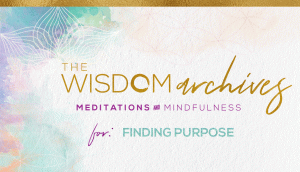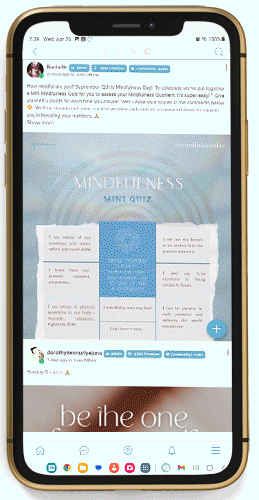You may have been taught to use the words: ‘I’m sorry’ when you’ve said or done something that you feel badly or remorseful for; or if you’ve dropped the ball on something or made a mistake that you wish to acknowledge.
The words “I’m sorry” convey a greater – and enlightened importance – in our current society.
“I’m sorry” can offer compassion, concern, mindfulness, and empathy towards another.
For example, “I’m sorry you’re not feeling well today.”
“I’m sorry” goes even further to help us communicate with effectiveness; the words are not dependent on whether you have made an error or are seeking forgiveness.
An apology encourages forgiveness by eliciting sympathy.
Experience how powerful these words are as a tool for loving kindness and to convey healthy boundaries with others.
Saying, “I’m sorry” is not solely about admitting fault or wrongdoing. The power of these two words lies in how you use them; what they are meant to convey; and how you can diffuse a situation while being polite – and yet firm and clear.
Use “I’m sorry” with sincerity in moments when you recognize that another person is behaving in a way that is improper or unkind; and as you may feel discomfort or hurt. “I’m sorry” can help to clarify and teach clear boundaries. For example: “I’m sorry, but saying/doing that is not helpful (kind/appreciated).” Letting someone know what is okay and what is not okay guides the course of your relationship. It disarms others and allows them to stay engaged with what comes after.
My client Jillian – a successful family lawyer, began receiving requests for dates from a colleague and two former clients after an Instagram post of her on vacation with friends revealed a very attractive woman in a bathing suit. “I’m sorry” became part of her repertoire and an important means of establishing (and in some cases re-establishing) clear professional boundaries. For example, “I’m sorry but it’s not appropriate for colleagues/former clients to ask me out on dates and it’s also against my ethical practice to date a client/colleague. I hope that you can understand this.”
The words, “I’m sorry” is disarming to the listener. As a receiver, your guard immediately goes down when you hear these words. Research shows that receiving an apology has a noticeable, positive physical effect on the body. An apology actually affects the bodily functions of the person receiving it—blood pressure decreases, heart rate slows and breathing becomes steadier.
It’s powerful to be kind and compassionate. It’s also powerful when you use the words, “I’m sorry” with sincerity and firmness – to uphold clear and distinct boundaries.
Saying that you are sorry when you have done something that may offend or hurt another – especially when you did not intend to do so, shows that you care about the relationship. It allows the other person to feel better whether by restoring dignity or simply acknowledging your error. An apology offers kindness and can renew and rebuild trust and understanding in a relationship. A heartfelt “I’m sorry” can establish a greater level of openness and a dialogue for new ways of being with one another. It contributes to a feeling of safety to be one’s self and to acknowledge mistakes whilst having a healthy means of resuming a positive relationship. It makes both the receiver and the giver feel comfortable and at ease.
Showing vulnerability by using the words, “I’m sorry” helps to build trust in relationships.
I remember working with an Operations Manager at a Manufacturing Plant who used “I’m sorry” excessively and without taking the opportunity to improve a situation (or his own actions). In working with other members of this company’s management team, it was expressed to me that this Manager’s words seemed like a trite way of excusing himself while continuing to make similar errors, and not follow through with what he said he would do. I encouraged this Manager not to overuse the act of apologizing but to instead improve his performance; to focus on changing the behaviours that others might perceive as ‘thoughtless’ or ‘disingenuous’. You can overuse the words, “I’m sorry” to the point where they don’t mean anything to the receiver and in fact become a point of contention.
When he realized the impression that was being conveyed and the optics of overusing “I’m sorry”, it was a game changer. This Manager began to look closely at his inaction and set out to correct his behaviour, making himself accountable to his word.
Use the power of “I’m sorry” to be humble (even if you are not wrong but rather when something has gone wrong), to instill and uphold healthy boundaries – and to teach others how you wish to be treated (when they are not being respectful of your needs or wishes). The words “I’m sorry” can become a gentler means of speaking to subject areas and sensitive matters that may otherwise be difficult. By being somewhat vulnerable, you encourage others of the same.
When can you use ‘I’m sorry’ in your life to uphold healthy boundaries, to offer care and concern; or to acknowledge someone who is suffering? How can these two words become powerful tools of communication in your life?
Let me know! Leave me your answer in the comments! Namaste!


















Leave A Comment
You must be logged in to post a comment.